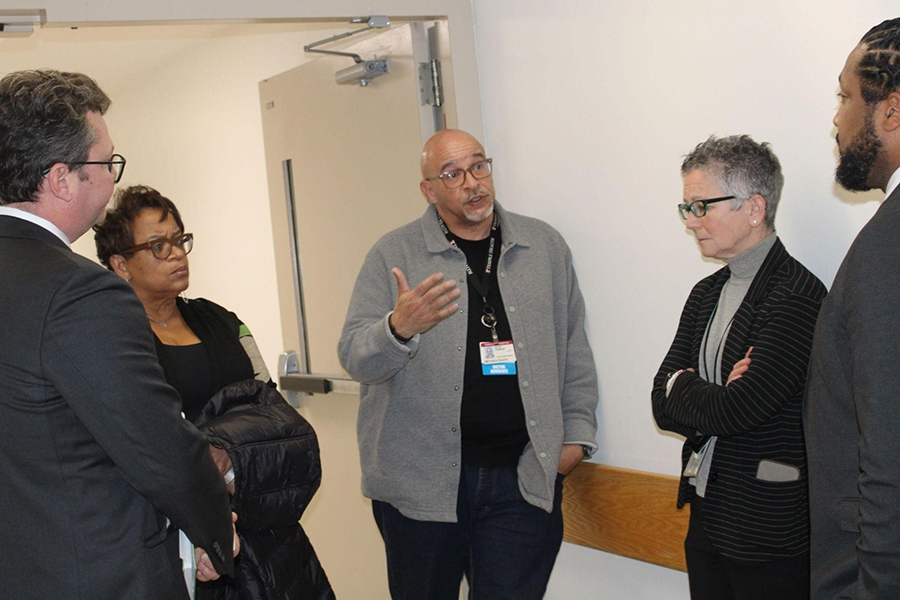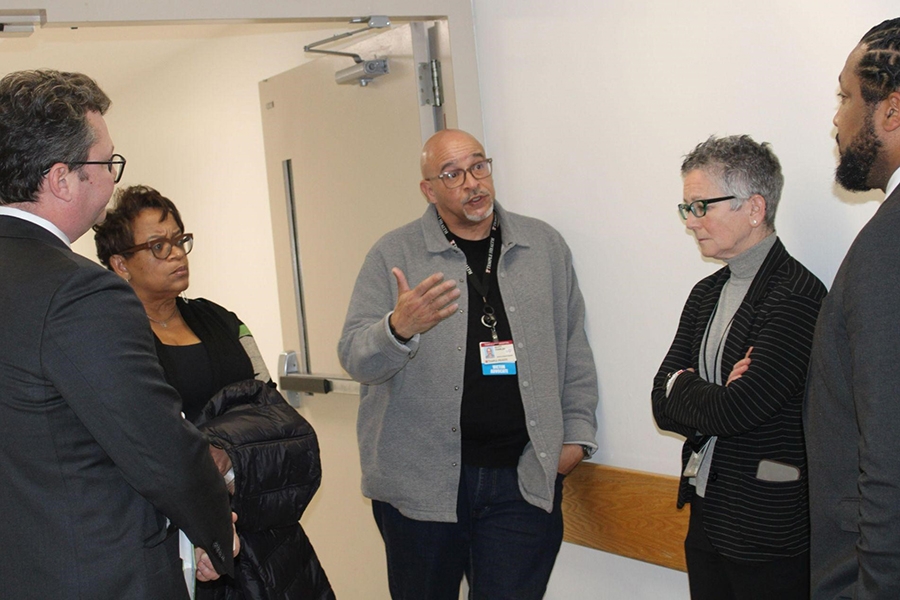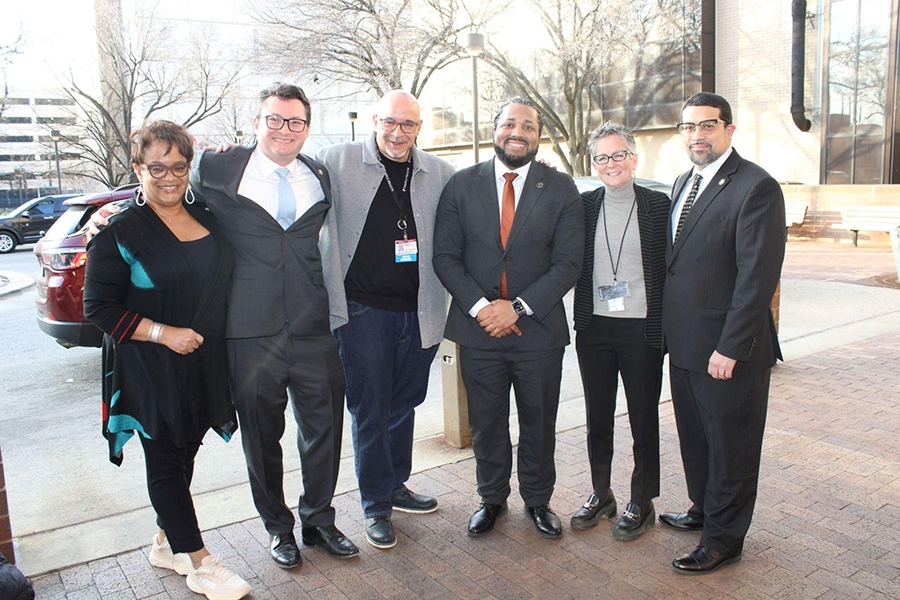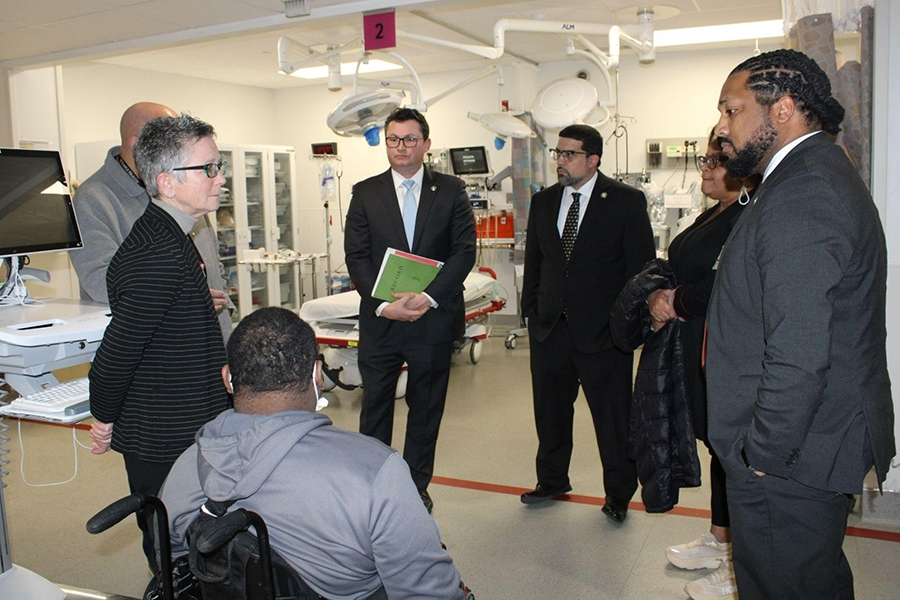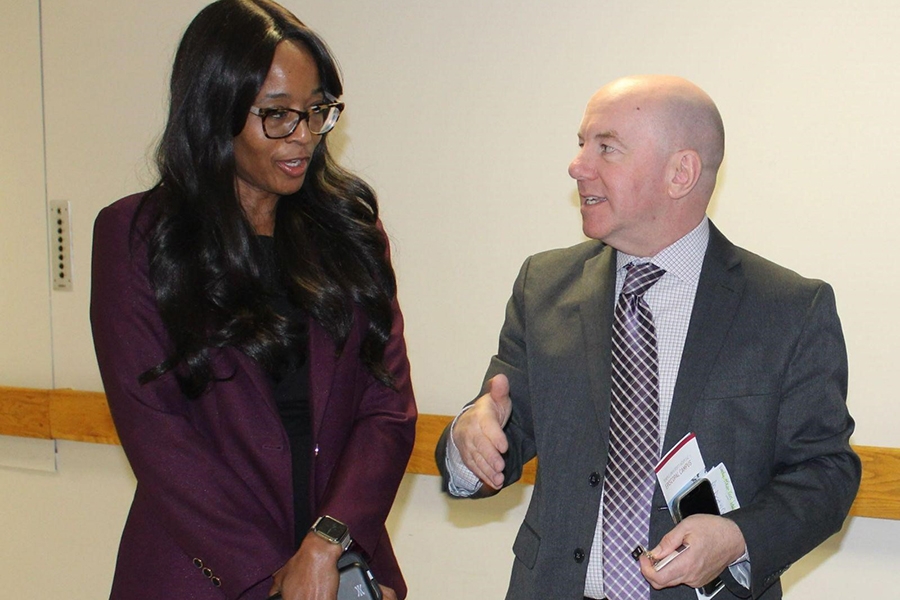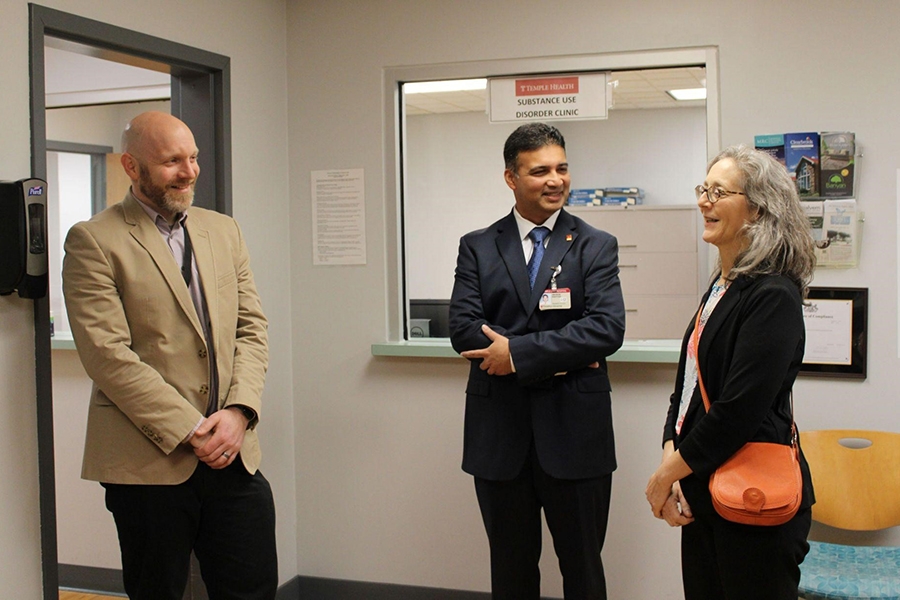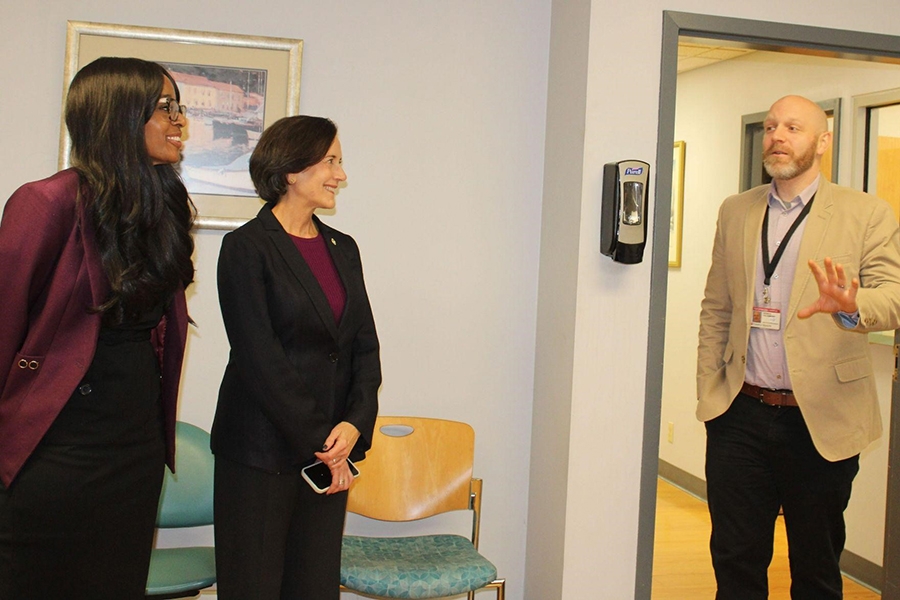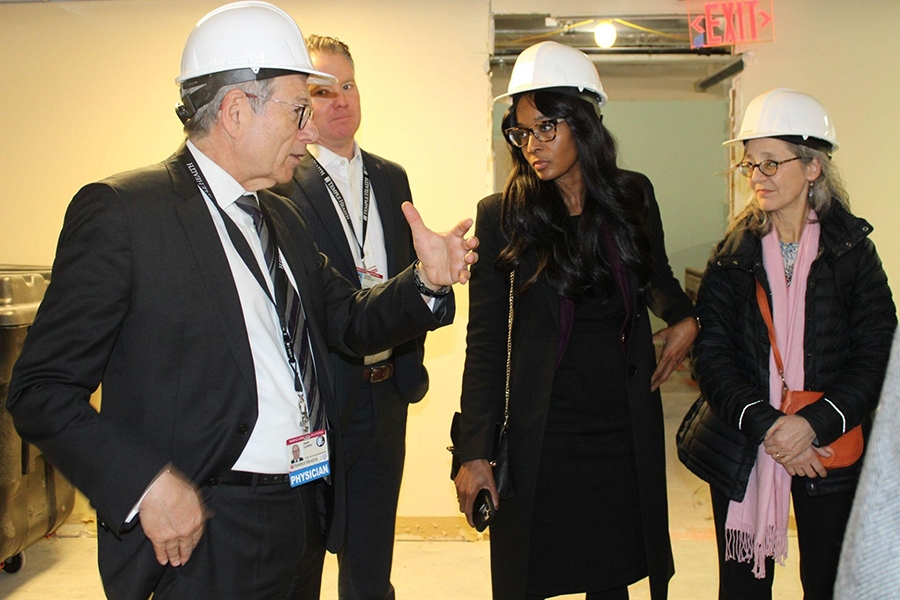Temple Health has earned a reputation for excellence for innovative programs that empower our neighbors to build safer communities and live healthier lives. That’s what inspired two very special campus visits on February 8th: the first from the Pennsylvania Departments of Health, Human Services, and Drug & Alcohol Leadership, and the second from the White House Office of Gun Violence Prevention.
Innovative Approaches to Wrap-Around Treament
The PA Departments of Health, Human Services, and Drug & Alcohol Leadership visited Temple University Hospital-Episcopal Campus and Temple Women & Families for a walking tour and a roundtable discussion with Temple leaders. Discussions centered on Temple’s treatment approaches and resources for substance use disorder (SUD).
The delegation included Valerie A. Arkoosh, MD, MPH, Secretary of Human Services; Dr. Lakita Davis-Jones, Secretary of Drug and Alcohol Programs; and Debra L. Bogen, MD, Acting Secretary of Health. Abhi Rastogi, MBA, MIS, President and CEO of Temple University Hospital; John G. Robison, Executive Director of Episcopal Campus; and Katherine E. Levins, JD, MBA, Vice President of Public Policy and Government Affairs took our visitors on a tour of campus.
The group visited the Emergency Department, as well as the site of the new Expansion and Renovation Project, which will add an additional 10 patient treatment bays. They also toured the Crisis Response Center, which is also under construction; once completed and reopened in its new location, it will be more than triple its current size. At the Substance Use Disorder Clinic, they met with Patrick Vulgamore, MPH, Director of Addiction Medicine Services. Vulgamore and our other leaders discussed how Episcopal has been able to leverage its resources to support patients with multiple intersecting diagnoses, providing compassionate, effective treatment to individuals living with SUD and mental health conditions.
Best-in-Class Care for All at Temple Women & Families
After leaving Episcopal, Drs. Arkoosh, Davis-Jones, Bogen, and their delegation headed for Women & Families Campus, where they were joined by Pennsylvania State Senator Christine Tartaglione. The group put on their hard hats for a tour of the construction zone, as well as the campus’ outpatient OB/GYN practice, led by Jack Ludmir, MD, FACOG, Chief Physician Executive of the Women & Families Campus; Daniel del Portal, MD, MBA, Senior Vice President of Medical Operations and Senior Clinical Officer; and Kim Hanson, BSN, MHA, RNC-OB, NEA-BC, Vice President of Nursing Operations and Chief Nursing Officer of Temple Women & Families.
The Women & Families visit was motivated by the Secretaries’ involvement in the development and implementation of Pennsylvania’s maternal and child health strategic vision and outcome improvement efforts. In opening this new campus, Temple Health’s goal is to provide exceptional care for women and families at all income levels while expanding its mission to ensure that diverse, socioeconomically disadvantaged communities have access to the very best treatment.
That’s why the Women & Families Campus will offer treatment for mental health conditions and SUD during and after pregnancy, as well as support for those suffering from fetal loss, infertility, and birth of an infant needing intensive care. These topics figured prominently in the roundtable discussion which followed the tour and were guided by insights from Abhi Rastogi; Michael Young, MHA, FACHE, President and CEO of Temple Health; Jessica Kovach, MD, Chair of Psychiatry and Behavioral Science; and Anjali Rajadhyaksha, PhD, Director of the Center for Substance Abuse Research.
White House Officials Learn About Successful Violence Prevention Programs
Later that same afternoon, two deputy directors from the White House Office of Gun Violence Prevention—Greg Jackson and Rob Wilcox—toured the Emergency Department at Temple University Hospital-Main Campus. They were accompanied by Amy J. Goldberg, MD, FACS, Dean of the Lewis Katz School of Medicine and the George S. Peters, MD and Louise C. Peters Chair and Professor of Surgery; and Trauma Outreach Manager Scott Charles, MAPP, FCPP.
Dr. Goldberg and Charles discussed their nearly two decades of working together on gun violence prevention and community outreach programs. Those include Cradle to Grave, which offers young people an unflinching look at what really happens when someone experiences a firearm injury; Fighting Chance, which trains community members in trauma-related bystander aid; Temple Health’s Trauma Victim Support Advocates, who offer 24-hour support to patients and family members who experience a crime-related injury during and after they receive care at Temple Health; and Safe Bet, which offers free gun locks to Philadelphia families who own firearms and have small children, no questions asked.
These programs have been a model for community empowerment and firearm violence prevention across the region and the country. This visit was a chance for the White House Office of Gun Violence Prevention to learn how the programs benefit Temple Health’s neighborhoods, and how they can be used to develop policy on a broader scale. The tour was also a chance to identify opportunities for Temple Health and the White House to work together on decreasing gun violence and firearm-related injuries in Temple’s communities.
For more information on Temple’s programs to empower Philadelphians and help make neighborhoods safer and healthier, check out our Community Benefit Report.
